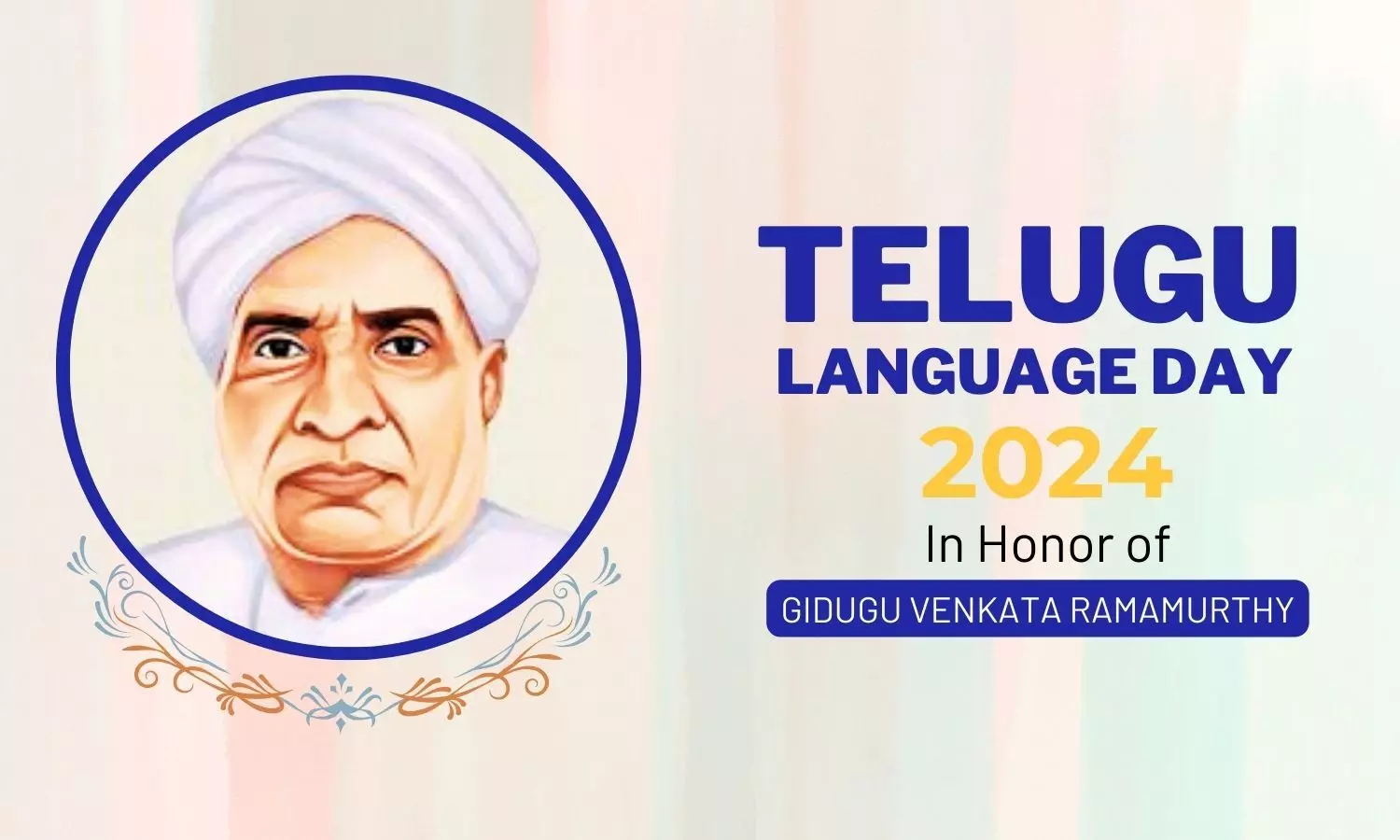Telugu Language Day 2024: Celebrating the Heritage of Telugu
Explore the significance of Telugu Language Day on August 29, 2024. Learn about Telugu’s rich history its role in Indian literature and culture.
Telugu Language Day 2024: Celebrating the Heritage of Telugu

Telugu Language Day, observed on August 29th annually, is a tribute to the rich linguistic and cultural heritage of Telugu. This day recognizes the significance of the Telugu language, one of India’s oldest and most vibrant languages. It is an occasion to celebrate its historical contributions, promote its usage, and honor its role in shaping regional and national identity.
Historical Context and Origins
Telugu, a Dravidian language, boasts a history that spans over two millennia. Its origins trace back to ancient inscriptions and texts, with its classical roots well-documented in literature and linguistic studies. The language evolved through various stages, influenced by political, social, and cultural changes over the centuries.
The celebration of Telugu Language Day was initiated to honor the contributions of eminent linguists, scholars, and poets who have enriched the language. The day is marked by various activities that highlight Telugu’s significance in literature, culture, and society.
Telugu is a repository of a rich cultural heritage. Its significance extends across multiple dimensions -
1) Cultural Heritage: Telugu literature is renowned for its classical poetry, prose, and drama. The contributions of poets such as Nannaya, Tikkana, and Yerrapragada, known as the "Kavitraya," are celebrated for their profound impact on Telugu literature. Their works continue to be studied and admired for their artistic and linguistic excellence.
2) Linguistic Importance: Telugu is one of the 22 scheduled languages of India, officially recognized in the Eighth Schedule of the Indian Constitution. It is spoken predominantly in the Indian states of Andhra Pradesh and Telangana, and by Telugu-speaking communities worldwide.
3) Cinematic Influence: The Telugu film industry, popularly known as Tollywood, is one of the largest in India. It has made significant contributions to Indian cinema through its innovative storytelling, vibrant music, and dynamic performances. Telugu films and actors have garnered national and international acclaim, further highlighting the language’s cultural prominence.
4) Educational Impact: Telugu serves as a medium of instruction in schools and colleges across Andhra Pradesh and Telangana. The language's role in education ensures that the younger generation remains connected to their cultural roots and linguistic heritage.
Celebrating Telugu Language Day
Telugu Language Day is marked by various events and activities aimed at promoting the language and its cultural significance. Key aspects of the celebration include -
1) Literary Festivals and Workshops: Events such as literary festivals, poetry recitals, and writing workshops are organized to celebrate Telugu literature and encourage new writers and poets. These activities foster a deeper appreciation for the language and its literary traditions.
2) Cultural Performances: Traditional music and dance performances, including Kuchipudi and folk dances, are showcased to celebrate Telugu culture. These performances highlight the artistic heritage associated with the language.
3) Educational Programs: Schools and colleges conduct special programs to promote Telugu. These programs include essay competitions, debates, and quizzes that encourage students to engage with the language and its literature.
4) Media and Public Awareness Campaigns: Media outlets and public figures often participate in campaigns to raise awareness about the importance of preserving and promoting Telugu. These campaigns aim to reach a wider audience and emphasize the language’s relevance in contemporary society.
5) Community Engagement: Community events and gatherings are organized to bring together Telugu-speaking individuals and families. These events provide a platform for sharing cultural experiences and celebrating the language’s role in community bonding.
Challenges and Opportunities
While Telugu Language Day is a celebration of linguistic and cultural pride, it also highlights certain challenges and opportunities for the language -
1) Preservation of Traditional Dialects: Telugu, like many languages, has various dialects that reflect regional variations. Efforts to document and preserve these dialects are crucial for maintaining the language’s richness and diversity.
2) Promotion in Global Context: As Telugu-speaking communities expand globally, promoting the language and its culture in a global context becomes essential. Language promotion efforts should include the establishment of Telugu language classes, cultural exchange programs, and international collaborations.
3) Integration with Technology: Embracing technology and digital platforms can enhance the visibility and accessibility of Telugu. Developing digital content, educational apps, and online resources in Telugu can help reach younger audiences and facilitate language learning.
4) Cultural Exchange and Collaboration: Encouraging cross-cultural exchanges and collaborations with other linguistic and cultural communities can enrich Telugu and broaden its influence. Such interactions can lead to new forms of artistic expression and literary innovation.
Telugu Language Day is a celebration of the language’s rich heritage and its enduring impact on culture, education, and society. It is a day to honor the contributions of past and present scholars, poets, and artists, and to promote the continued use and appreciation of Telugu. As we commemorate this day, let us reaffirm our commitment to preserving and promoting Telugu, ensuring that it remains a vibrant and integral part of our cultural landscape.

